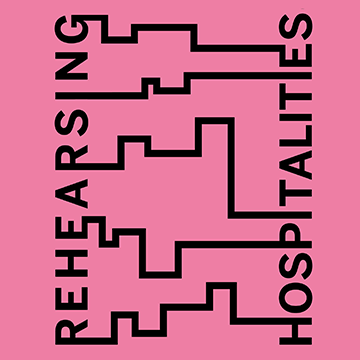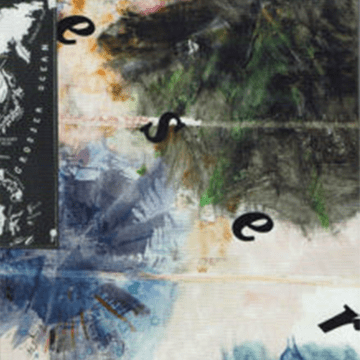This reader, published on the occasion of the project O Quilombismo: Of Resisting and Insisting. Of Flight as Fight. Of Other Democratic Egalitarian Political Philosophies, brings the themes of the eponymous group exhibition to those interested in wider conceptual explorations around its multifaceted curatorial threads: insurgence, resistance, liberation, spirituality, ecstasy, new cultural forms and aesthetic paradigms, quilombo as queering, and the reimagination of collectivity.
Tag: reader
Force Times Distance. On Labour
This reader is a culmination of direct and tangential deliberations on labour. Notions of labour appreciated across geographies and mediums. Newly commissioned textual manifestations in a multilogue with historical positions. The reader could be perceived as a negotiation of positions, as the strive towards utterances, towards becoming.
Rehearsing Hospitalities Companion 4
Rehearsing Hospitalities Companion 4 asks what the possibilities and limitations of hospitality are. Should we instead be turning towards “rehearsing” redistribution?
This publication points towards the vast ways our lives and worlds could be organised through less hierarchical, extractive, and exploitative practices: with more love afforded to ourselves, one another, and our more-than-human kin.
Rehearsing Hospitalities Companion 3
Rehearsing Hospitalities Companion 3 is the third in a series of readers published by Frame Contemporary Art Finland and Archive Books, which accompany Frame’s five-year public programme Rehearsing Hospitalities. The 2021 edition looks into questions of hospitality safety, security and care.
Eser
Eser is a comprehensive publication on Judith Raum’s works, installations and lecture performance texts from 2011 to 2014. It is also a theoretical reader and material collection on the semi-colonial advance of German entrepreneurs and bankers into the Ottoman Empire before World War I in connection with the construction of the Anatolian Railway. In this frame, the logic of capitalism and geopolitical interests connected the engineers’ tasks with less obvious efforts: to get a hold of Anatolian agriculture, archaeology and the working conditions in the country. Judith Raum’s work suggests that gestures and rhetoric of power and domination are the consequences of an economic principle that did not end with the colonial era and in fact persist today. Her works and texts take her research on site and in archives as a starting point, they exhibit an autonomous aesthetic dimension, however, and as such suggest an alternative approach to ‘artistic research’.




